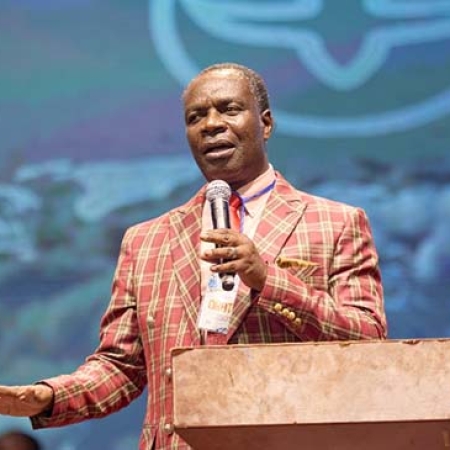“They devoted themselves to the apostles’ teaching and to the fellowship, to the breaking of bread and to prayer.” Acts 2:42 (NIV)
Introduction
Luke the writer of the book of Acts identified four activities that captured the attention and devotion of the early church. These activities were the driving force behind the vibrancy and massive growth of the church. They are:
- The Apostles’ Teaching or Doctrine
- Fellowship
- The Breaking of bread, and
- Prayer
In this article my focus will be on the first one, the Apostles Doctrine.
What is the Apostles Doctrine?
Simply put, the Apostles Doctrine (as the name implies) is the body of teachings, practices and standards of conduct given and established by the Apostles of the Lord Jesus Christ to the disciples in the early church.
The natural question which arises out of this definition is, “from where did the Apostles get those teachings?” The answer is simple: From the Lord Jesus Christ and the Holy Spirit.
Judaism And The Teachings Of Moses
Judaism is the predominant religion of the Jews. It was established through Moses after their deliverance from slavery in Egypt. By the time of Christ’s earthly ministry, the whole nation adhered strictly to that system of worship. The Rabbis, Scribes and the Pharisees taught the doctrine of Moses in the Temple and synagogues. Moses was revered as their supreme spiritual leader and teacher. He was the source of the Laws that directed Jewish worship. All Jews therefore considered themselves disciples of Moses – John 9:27-29.
The Bible is silent on the way the Israelites worshipped God while in Egypt. There is no indication of a formal mode of worship, priestly institutions, legislations etc. until Moses appeared on the scene. One of the foremost religious practices he established was the Passover during which the Passover Lamb was slain and other ceremonies observed as part of the celebration. Later in their journey to the Promised Land, he received the Ten Commandments and other Laws and also established rules and regulations that governed the priesthood, religious, moral and social relationships.
The Old Testament Prophets also brought on board their prophecies, revelations and insights, what they described as “the Word of the Lord” that came to them. So Scripture refers to the Old Testament as “The Law (or Moses) and the Prophets” (See Mt 5:17, Mt 7:12, Mt 11:13, Mt 22:40, Lk 16:16,29,31, Lk 24:25-27, 44, Jn 1:45, Acts 13:14,15, Acts 24:14, Acts 26:22,23, Acts 28:23, Rom 3:21).
The book of Psalms was also a great source of Jewish teaching and practice especially in praise, worship and prayer.
The interpretations of the Mosaic Law, Psalms and the Prophets crafted by the Pharisees and teachers of the Law were also regarded as part of the Law. According to Wilmington, there were 613 interpretations of Sabbath laws. Some of the many laws and regulations governing the Sabbath included:
- allowable distances to be covered – Acts 1:12
- no healings or exorcism – Matthew 12:9-14, Luke 13:10-17, John 5:14-18
- no plucking of grains – Matthew 12:1-8
- no carrying of luggage including mats – John 5:8-13.
There were also regulations concerning hygiene and sanitation – Mark 7:1-23.
All of these (i.e. the ceremonial, social and moral laws) put together formed the teachings of Moses which the nation was required to obey.
Jesus spoke against some of these regulations, broke some and declared Himself Lord over the Sabbath (Matthew 12:8). In it all He indicated that He had come not to abolish the Law or the Prophets but to fulfill them – Matthew 5:17-19.
The Teachings Of Jesus Christ
When Jesus began His ministry, He was perceived as a threat to the Jewish religious establishment. In the Sermon on the Mount, He declared: “You have been told” or “You have heard it said…but I tell you that …” Matthew 5:17-48. He is quoted six times as saying this in the Sermon (verses 21-22, 27-28, 31-32, 33-34, 38-39, 43-44).
This was a radical reinterpretation of Mosaic doctrine and an attempt to establish Himself as an authority in religious matters. What authority did He have to overhaul Moses’ doctrine? After all, He was not a recognised Rabbi! Truth however was that someone greater than Moses had come! (Hebrews 3:1-6).
Jesus had a powerful teaching ministry. His teaching was accompanied by healings and miracles (Matthew 4:23-25; 9:35, John 3:1,2). This was recognized and acknowledged by those who heard Him teach – Matthew 7:28,29; Luke 11:27,28, John 3:1,2, John 7:32,45-49. With the Apostles sitting at His feet as His disciples, they took on board the teachings given by their Rabbi (Mark 9:30,31a). They were by this being transformed from disciples of Moses into disciples of Christ. They also heard Him teach the crowds in the temple, by the sea and on the mountainside. Before His ascension He instructed them to teach those who believe the gospel to obey all that He had commanded them- Matthew 28:18-20. What they were to teach was what He had earlier called “My teaching” John 7:16-17; 8:31; 14:23, 24. This was clearly distinguishable from the teachings of Moses. It was their obedience and conformity to this new teaching, His teaching, which will make the believers His disciples.
Through it all, the apostles’ understanding and appreciation of the new teaching, (Jesus’ teaching upon which the church would be built) was being formed. There was no way they were going to fail in that mission when Jesus left it in their hands.
The Role Of The Holy Spirit
In His interactions with them, Jesus made the apostles aware that He had a lot to teach them which they could not bear at the time. He promised that when the Holy Spirit comes, He (the Holy Spirit) will teach and guide them into all truth – John 14: 25-26; 16:12-15.
John the Beloved Apostle was later to write that the anointing (of the Holy Spirit) teaches believers the truth – 1 John 2:20, 27. By this anointing the Apostles were given supernatural insight into the Old Testament Scriptures from which they crafted teachings for the infant church (See Psalm 119:18, 130). Paul and Peter, for instance, drew heavily on the Old Testament books for their theology quoting extensively from them in their epistles.
On the day of Pentecost, Peter quoted from the Prophet Joel to explain the outpouring of the Holy Spirit in Acts 2. He went further to quote Psalm 16: 8-11 and revealed in his message that the Holy Spirit was referring to Jesus (and not David) in that Psalm. The revelations from the Old Testament Scriptures became the foundation for faith and practice in the church. In fact, when Paul wrote to Timothy that all Scripture is given by the inspiration of God (2 Timothy 3:16-17), he was possibly referring to the Old Testament. It was the Scriptures of their day. Peter used the Psalms as the reference point in the choice of a replacement for Judas Iscariot in Acts 1:15-20. However instead of interpreting it like the Teachers of the Law and Pharisees, the Apostles were led by the Holy Spirit to gain supernatural insight which directed their understanding and teaching. It is interesting to note that Peter referred to Paul’s letters as part of Scripture in 2 Peter 3:15, 16. Paul himself admits that he received the teachings directly from the Lord through revelation and not from men Galatians 1:11, 12.
So What Constituted The Apostles’ Doctrine?
In my opinion the Apostles Doctrine included (but was not limited to) the following:
- A strong affirmation of the inspired Scriptures as the final authority for faith and practice in the church. Acts 1:15-22, Acts 15:12-21
- Preaching the resurrected Jesus as the Christ and only Saviour – Acts 2:22-41, 3:11-26, 4:1-12, 8:4,5, 10:34-48, 13:13-41
- Preaching repentance and faith in God through Jesus Christ for the forgiveness of sins – Acts 2:38, Acts 3:15, Acts 17:30
- The promise of the Holy Spirit (including His power and gifts) to all believers –
Acts 2:38, 39, Acts 8:14-17 Acts 19:1-7, 1 Corinthians 12, Romans 12:3-8, 1 Peter 4:10,11
- Worship, Church Life and how it should be organised – 1 Corinthians 14, 1 Timothy 3:14,15, 1 Timothy 5.
- Standards of Discipline and Application of Sanctions – 1 Corinthians 5, 1 Timothy 1:18-20, 3 John 9
- Qualification for Church Leadership – 1 Timothy 3:1-13, Titus 1:5-9, 1 Peter 5:1-5
- Marriage and Family Life – Ephesians 5:22-33; 6:1-4, Colossians 3:18-21, 1 Peter 3:1-7, 1 Corinthians 7
- Work Ethics – Ephesians 6:5-9, Colossians 3:22-25
- Separation from the World and Consecration to God – Romans 12:1,2, 1 Peter 2:11,12, Colossians 3:1-17, 1 John 2:15-17
- Submission to Governing Authorities/Civic Responsibilities – Romans 13:1-7, 1 Peter 2:13-17
- Suffering and Persecution for the sake of Christ – 1 Peter 2:13-25; 3:8-18; 4:12-19
- Salvation, Redemption, Sanctification, Justification, Holiness
The Book of Romans, 1 Corinthians 6:9-20, Galatians 5:16-26
- Faithful and Sacrificial Giving to help the Needy and to advance the Work of the Kingdom – 1 Corinthians 16:1-4, 2 Corinthians 8,9
- Spiritual Warfare – Ephesians 6:10-20, 2 Corinthians 10:3-6
- Caution Against False Teachers and Erroneous Doctrine
Acts 20:28-32, 2 Corinthians 11, 1 Timothy 4:1-7, 2 Timothy 4:1-5, 1 John 4:1-6, Revelation 2:12-29
- Death, Resurrection and the Afterlife (i.e The Believers Heavenly Hope)
1 Corinthians 15, 1 Thessalonians 4:13-18, The Book of Revelation
- The End Times and the Glorious Return of our Lord and Saviour Jesus Christ –
2 Pet 3, 2 Thess 1, 2
Conclusion
These teachings from the Apostles, founded on the Law and the Prophets coupled with what they had received from the Lord Jesus Himself and the revelations granted them by the anointing of the Holy Spirit, is what constitutes the Apostles Doctrine. Inspired by the Holy Spirit, the teachings were a clear departure from the orthodox legalistic teachings of the Pharisees, Teachers of the Law and Scribes.
Without sounding partisan or inward looking, I wish to affirm that the Tenets of The Church of Pentecost (COP) is a close semblance of the Apostles Doctrine as taught in the early Church.
With the Apostles Doctrine firmly planted in the believers, the early Church was able to confront all forms of erroneous and false doctrines which arose in their time.
The Apostles Doctrine became the yardstick for determining true doctrine and deviations from the truth. We must also devote ourselves fully to teaching and also practice it in our assemblies as the early church did. By this we can raise the disciples the Lord seeks for carrying on the mission of the church in our generation.
By: Apostle Gideon Obeng-Darko Debrah














